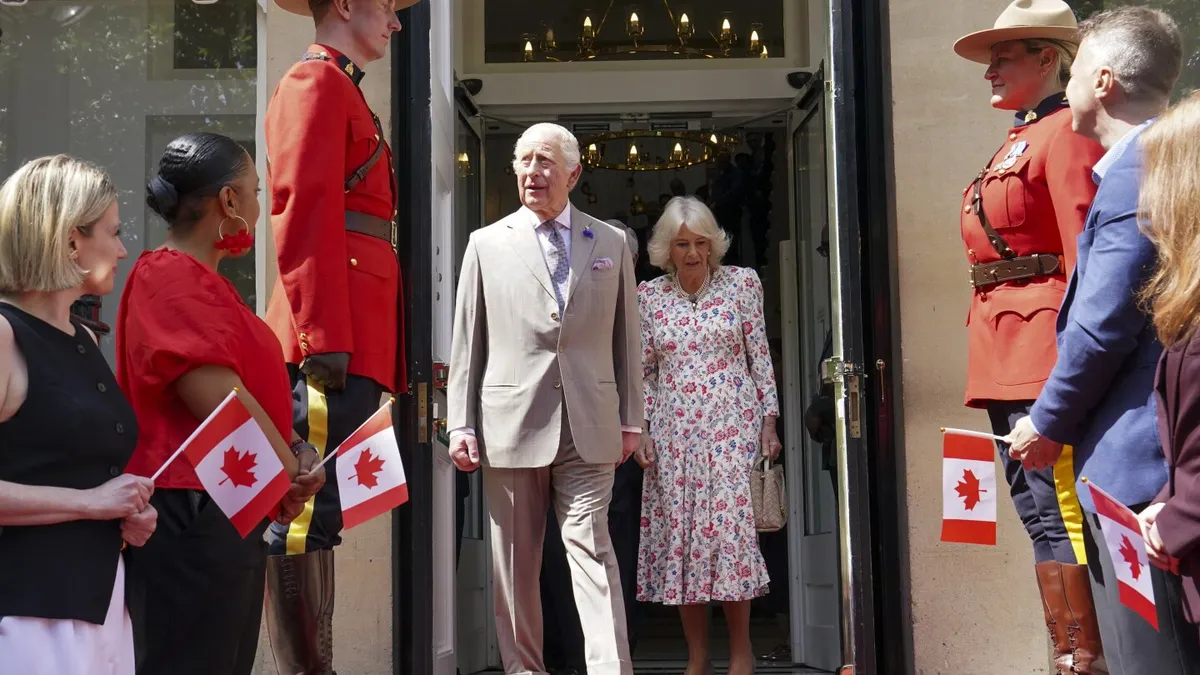
OTTAWA, Ontario (AP) — This week, King Charles III is set to arrive in Ottawa to deliver a profound message regarding Canada's sovereignty, particularly in light of U.S. President Donald Trump's previous remarks suggesting the annexation of Canada by the United States. In response to these assertions, Prime Minister Mark Carney has extended an invitation to the king to deliver the speech from the throne, which will outline the government's agenda for the new Parliament.
As the head of state in Canada, King Charles III represents a constitutional monarchy within the British Commonwealth of former colonies. During a recent caucus meeting, Carney expressed the significance of the king’s visit, stating, “His Majesty King Charles III will read the speech from the throne and thus present the plan of our government, our priorities, as Canada is facing a pivotal moment in its history—the biggest transformation of the global trading system since the fall of the Berlin Wall.” This visit emphasizes the importance of Canadian sovereignty amidst external pressures.
It is quite rare for a monarch to deliver the speech from the throne in Canada; the last occurrence was during Queen Elizabeth II’s reign, which took place in 1977. Although many Canadians remain indifferent to the monarchy, Carney aims to highlight the distinctions between Canada and the U.S. He stated, “Canada has a steadfast defender in the sovereign,” reinforcing the notion that the king’s presence symbolizes Canadian independence and identity.
Former Quebec Premier Jean Charest emphasized the importance of King Charles III's role, stating, “If you look at why King Charles is reading the speech from the throne, then you have to acknowledge Canada’s story.” The historical context is vital; while the U.S. fought a revolution for independence, Canada remained a colony until 1867, evolving into a constitutional monarchy with a British-style parliamentary system. This historical backdrop accentuates Canada's unique identity and relationship with the monarchy.
New U.S. Ambassador to Canada, Pete Hoekstra, has suggested that sending messages about sovereignty is unnecessary, urging Canadians to move past discussions regarding becoming the "51st state." In an interview with the Canadian Broadcasting Corporation, Hoekstra implied that direct communication would be a more effective means of addressing any concerns. However, royal historian Carolyn Harris believes that Trump will take note of the king’s visit, highlighting the distinct historical relationship Canada has with the British monarchy.
It is important to note that the speech from the throne, scheduled for delivery on Tuesday, is not authored by the king or his advisors from the U.K. Instead, the king serves as a nonpartisan head of state, reading the remarks prepared by Canada’s government. As Canadian royal historian Justin Vovk explained, “Charles can only act with the consent and with the advice of his prime minister. But at the same time, he cannot act in a way that would throw any of the other 14 Commonwealth realms under the bus.” This delicate balance highlights the complexities of the king's role in relation to Canadian sovereignty.
Canadians expressed dissatisfaction when U.K. Prime Minister Keir Starmer extended a state visit invitation to Trump during a period when the latter threatened Canadian sovereignty. Carney commented to Britain’s Sky News, “They weren’t impressed by that gesture, quite simply, given the circumstance.” This reaction underscores the sensitivity surrounding discussions of sovereignty and national identity.
King Charles III is expected to show support for Canada during his visit, including wearing Canadian military medals on his chest while visiting a British aircraft carrier. Upon his arrival on Monday, he will participate in a ceremonial event by dropping the first puck during a street hockey game. Additionally, he will attend a community event and meet with Prime Minister Carney and Canada’s Governor General, who represents him as head of state. Following the speech and a visit to Canada’s National War Memorial on Tuesday, the king will return to the U.K.
This royal visit serves as a powerful reminder of Canada's sovereignty and distinct identity, highlighting the ongoing relationship between Canada and the British monarchy in the context of contemporary global challenges.